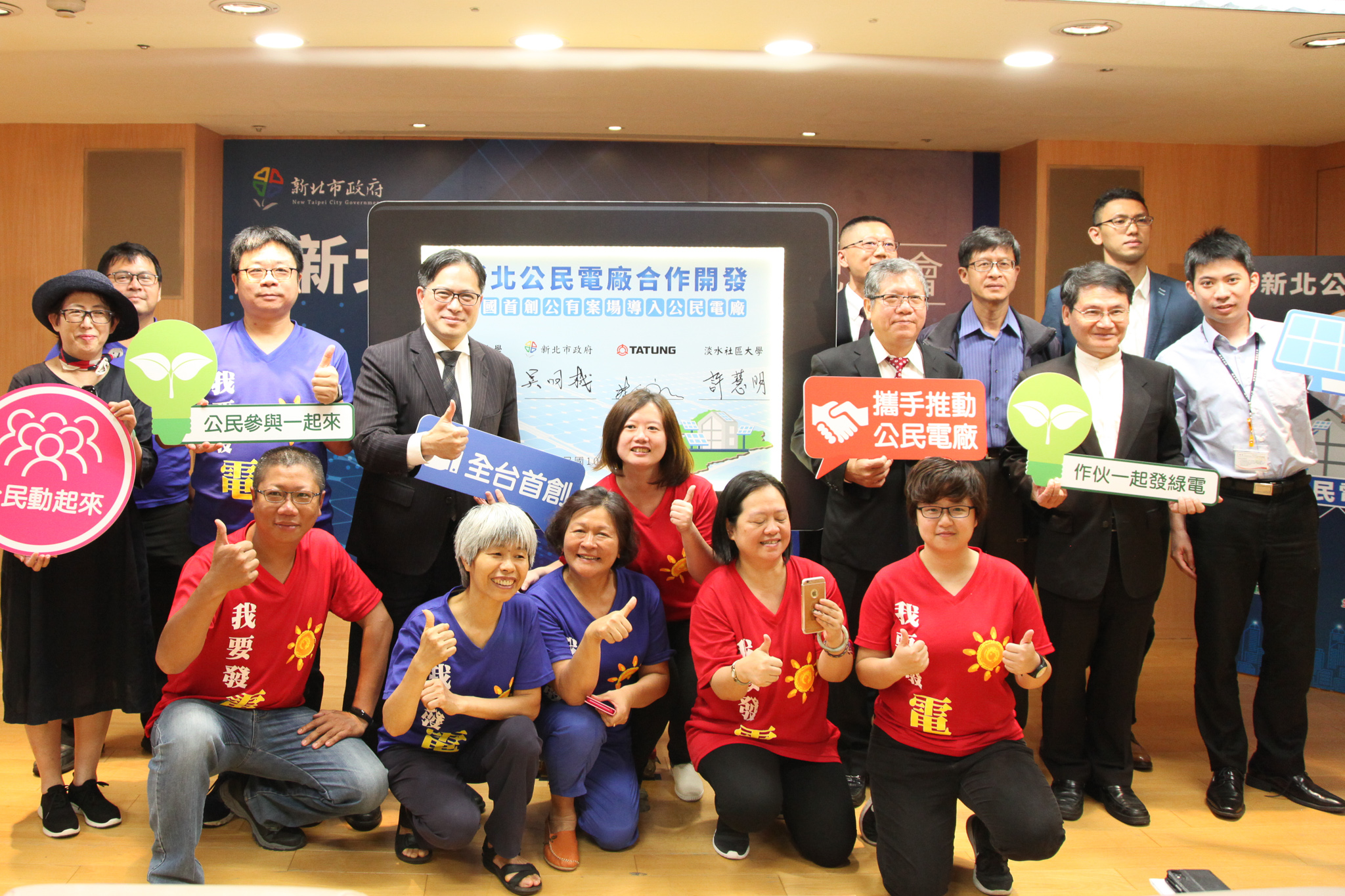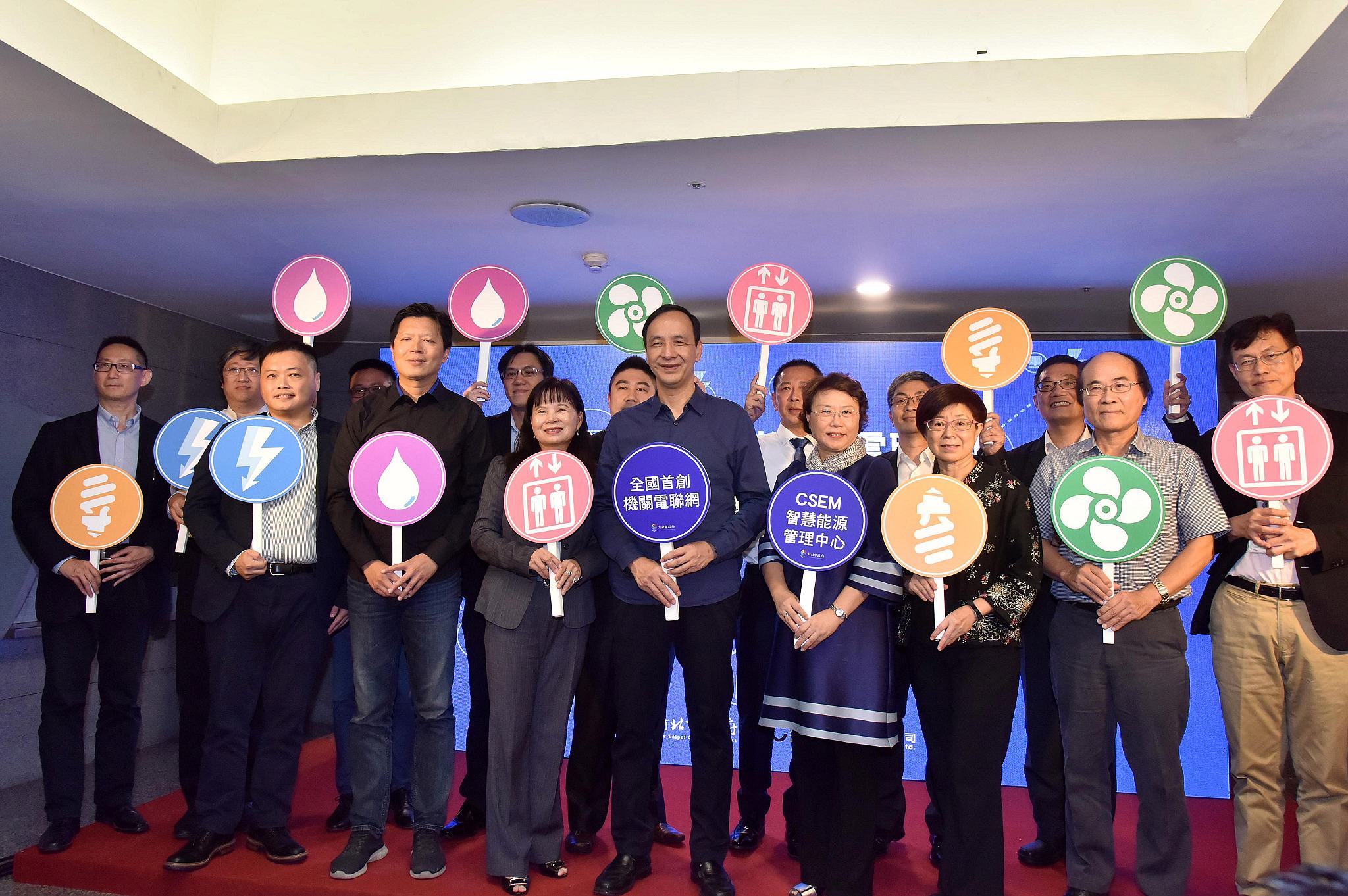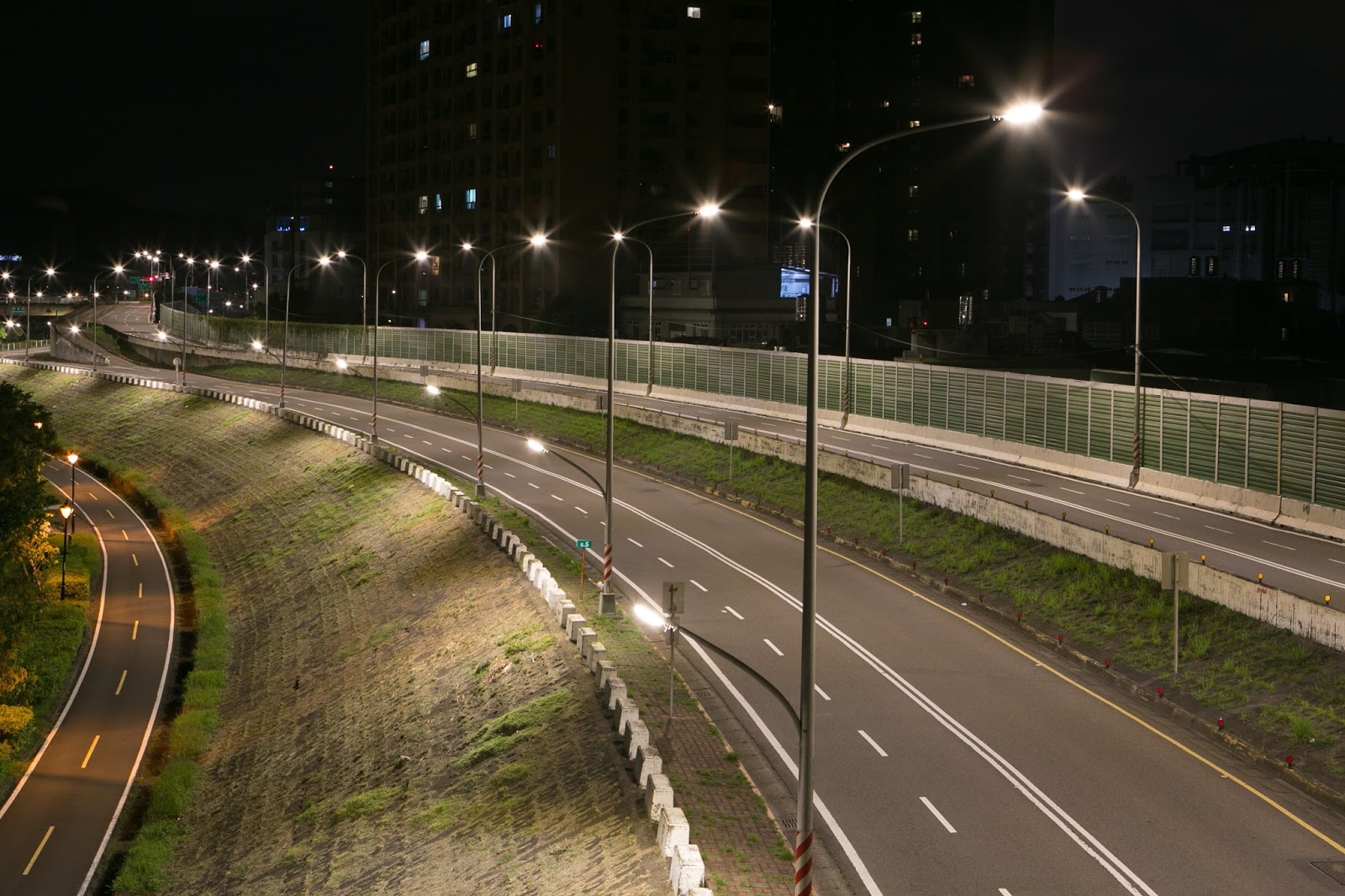
【SDG 7】New Taipei City civic power plants
2019-10-09

To promote civic participation in the generation of renewable energy, New Taipei City Government has established in public venues the country’s first two demonstration bases for the introduction of civic power generation mechanisms through the collaboration of industry, government, and civil sectors. The experience of these demonstration bases is expected to gradually facilitate awareness in energy independence, paving the way for civic power plants to proliferate in New Taipei City.
Deputy Mayor Ming-ji Wu indicated that New Taipei City has been a forerunner in the development of renewable energy since 2013. Through open tendering and leasing, public buildings in 158 venues have been opened for the installation of solar panels, amounting to 14.82 MW in installed capacity. This equals to the generation of 1.408 GWh of electricity, which reduces 7,488 tons of annual carbon emission, and adds NT$ 5.96 million’s worth of income to the City’s Treasury. To promote civic participation in energy transition and catch up with the trend of renewable energy worldwide, civic power generation is introduced to the sixth open tendering and leasing project in this fiscal year (2019). Aside from increasing the installed capacity of solar panels by 2 MW, the project also involves collaborating with Tatung Company, Ludi Community University, and Tamsui Community University in the establishment of two demonstration bases for civic power plants that would amount to the installed capacity of 20 KW. The City Government will continue to promote and implement the concept of civic power plants, incorporating civic power in the transformation of New Taipei into a city with sustainable development and low carbon emission.
The Economic Development Department of the City explains that a civic power plant is a power plant owned and run by citizens themselves. It has become the mainstream of renewable energy development worldwide. Take Europe for example, there are currently over 3,500 green energy cooperatives, involving more than half a million people. It is estimated that, by 2025, nearly half of residents in Europe will be engaging in the generation of renewable energy. In the case of Taiwan, the Electricity Act has been amended in 2017 to relax the restrictions on organizations allowed to participate in the renewable energy industry. Presently, cooperatives, corporations, non-profit organizations, and social enterprises are all entitled to engage in the generation of renewable energy, thus giving rise to civic power plants. In practice, citizens can initiate civic power plants based on local needs or culture. The continual discussion it entails also has the effect of consolidating citizens’ consensus. Moreover, the revenue from the generated energy can be used on local public affairs, such as community development, the support for disadvantaged groups, social welfare, and the creation of job opportunities. Thus, the operation is not merely about generating renewable energy; it is the realization of social values.
Competent Authority:Department of Economic Development, New Taipei City Government
Competent Authority:Department of Economic Development, New Taipei City Government
Related Solutions
 Visitor:941
Visitor:941


